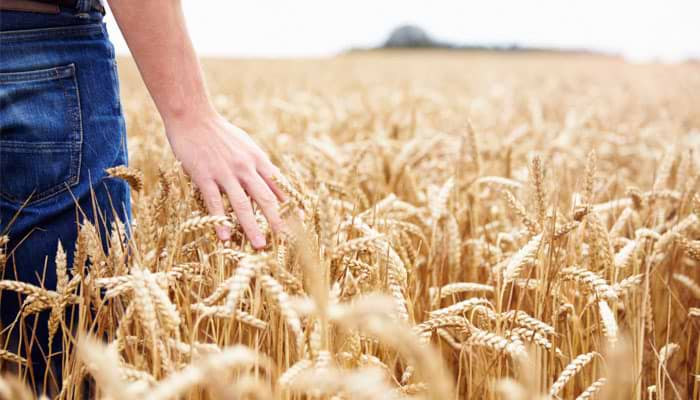
© Monkey Business / Adobe Stock
Every autumn, schools and churches all over the world hold their harvest festival. The celebration of the food grown on the land usually takes place in late September, after all the crops have been harvested. Traditionally, the harvest festival is held on the Sunday of the Harvest Moon - a full moon that occurs at the time of the autumn equinox on, or around, 23rd September. For two years out of three, the Harvest Moon appears in September, although it can also occur in October. The United States and Canada have a national holiday to celebrate the harvest festival. Although the UK marks the occasion with church services, it has not yet been declared a national holiday. This year's harvest celebrations began on 22nd September and will continue for the whole week, until 29th September. Harvest festival origins The thanksgiving celebrations for the successful harvest date back to ancient times - in Britain, the festival was originally a pagan celebration. In the 19th century, when the annual harvest began, each agricultural community would appoint a respected local man to be their Lord of the Harvest. It was his responsibility to organise the labourers to gather the crops and he would also negotiate their wages with the landowner. At the end of the harvest, all the agricultural workers celebrated with a big meal, known as the harvest supper - the traditional meal was goose, with a variety of vegetables. The Lord of the Harvest would sit at the head of the table and before the feast could begin, it was his responsibility to take the last sheaf of corn back to the farm to show that the harvest had been safely gathered. Giving to the poor Today, Christians decorate their churches with baskets of fruit and other food, thanking God for all the good things he gives to us. This encourages us to share our good fortune with other people who are not so lucky. The food on display in the churches is made into food parcels after the service for people in need. Similarly, children are urged to take a food item into school to make up harvest hampers and these are distributed among the needy. The hymn traditionally associated with the harvest festival is We Plough the Fields and Scatter. Its lyrics thank God for our food. It begins with the words, "We plough the fields and scatter the good seed on the land, but it is fed and watered by God's almighty hand." The hymn reminds us to thank God for "all things bright and good", including "the seed-time and the harvest, our life, our health, our food." Hymn's author The famous harvest hymn was written by Matthias Claudius, a German poet who was born in Reinfeld, Holstein, in August 1740. He came from a long line of clergymen, but made his living as a journalist, starting out by producing his own newspaper, The Wandsbeck Messenger, from 1771 until 1775. He published his own poems and prose essays in the newspaper. They were written in a simple way that appealed to the public and made him famous in his lifetime. The renowned composer, Franz Schubert, set to music one of Claudius' poems, Death and the Maiden, in 1817. We Plough the Fields and Scatter is Claudius' most famous hymn. He wrote it in 1777, when he had been ill and unable to leave his bed. He occupied himself by writing poetry. The hymn received its first public airing in 1782, when Claudius was invited to a dinner party by his friend. He was asked to bring one of his Christian poems to read aloud. He took We Plough the Fields and Scatter, which was based on Psalm 144. It was believed to have had 17 verses, but these were cut down over the years to the current three. Originally sung in German, it was later translated into English and became a staple of churches' and schools' harvest services. Modern times In modern times, around 200 years after it was written, the hymn has been referenced in popular culture. In 1969, the future Poet Laureate, John Betjeman, rewrote some of the hymn in a protest against using pesticides in modern farming, saying, "We spray the fields and scatter the poison on the land." Today, farming and the agricultural industry are recognised as being enormously important. Food is grown to distribute to the masses throughout the year and the industry also includes dairy and livestock farming, as well as vegetable crops. Many industries use raw materials that depend on agriculture including cotton, tobacco, sugar and oils. The sector not only provides food, it also creates a living for the farmers, the truck drivers who transport the produce, the shops selling the food, the restaurants relying on fresh produce and many other people involved in the industry and supply chain. MA Grigg’s country store has an exclusive range of prestigious country clothing brands such as Joules, Barbour, Hunter, Timberland and many more. We provide high-quality clothing for all seasons. Please contact us for further information.




